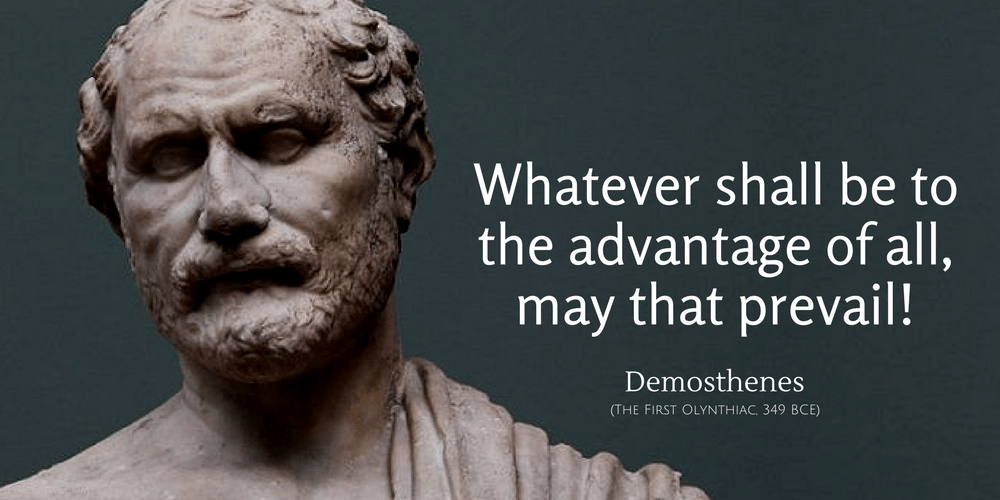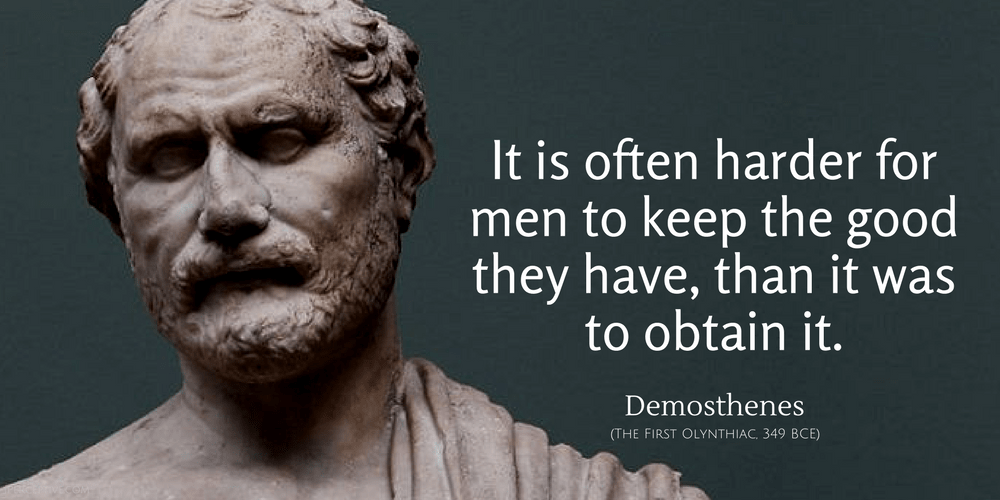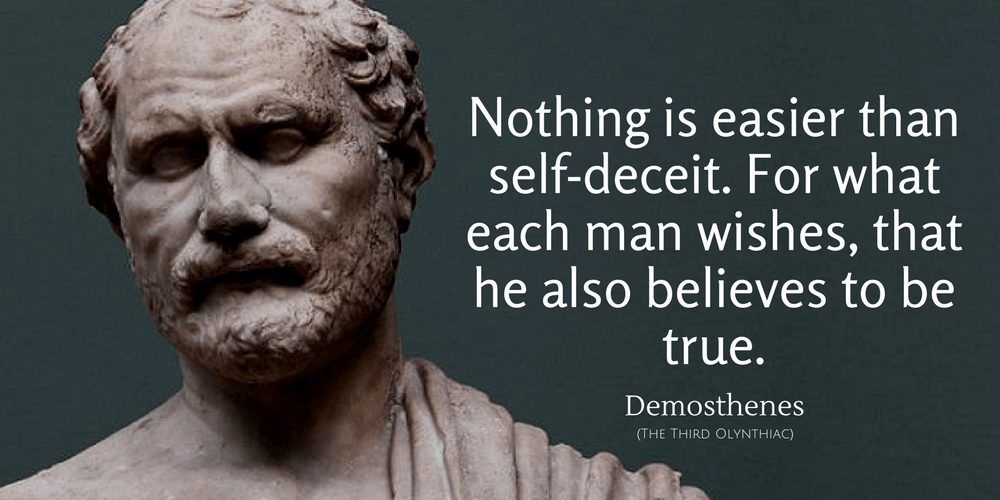Demosthenes Quotes

Whatever shall be to the advantage of all, may that prevail!
All speech is vain and empty unless it be accompanied by action.
Every advantage in the past is judged in the light of the final issue.
Small opportunities are often the beginning of great enterprises.
No man can tell what the future may bring forth, and small opportunities are often the beginning of great enterprises.
The fact speak for themselves.
Success has a wonderful power of throwing a veil over shameful things
It is not possible to found a lasting power upon injustice, perjury, and treachery.
The readiest and surest way to get rid of censure, is to correct ourselves.

It is often harder for men to keep the good they have, than it was to obtain it.
Fortune is everything, in all human affairs.
Beware lest in your anxiety to avoid war you obtain a master.
I say that now, if ever before, you must make your resolve, rouse all your energies, and give your minds to the war: you must contribute gladly, you must go forth in person, you must leave nothing undone. There is no longer any reason or excuse remaining, which can justify you in refusing to do your duty.
As a vessel is known by the sound, whether it be cracked or not; so men are proved, by their speeches, whether they be wise or foolish.
So long as a man is in good health, he is unconscious of any weakness; but if any illness comes upon him, the disturbance affects every weak point, be it a rupture or a sprain or anything else that is unsound in his constitution. And as with the body, so it is with a city or a tyrant.
He who confers a favor should at once forget it, if he is not to show a sordid ungenerous spirit. To remind a man of a kindness conferred and to talk of it, is little different from reproach.

There is a great deal of wishful thinking in such cases; it is the easiest thing of all to deceive one’s self.
Variant:
The easiest thing of all is to deceive one's self; for what a man wishes he generally believes to be true.
Variant: The easiest thing in the world is self-deceit; for every man believes what he wishes, though the reality is often different.
Variant: A man is his own easiest dupe, for what he wishes to be true he generally believes to be true.
Variant: What we wish, that we readily believe.
Variant: Nothing is easier than self-deceit. For what each man wishes, that he also believes to be true.
The man who has received a benefit ought always to remember it, but he who has granted it ought to forget the fact at once.
You cannot have a proud and chivalrous spirit if your conduct is mean and paltry; for whatever a man's actions are, such must be his spirit.

